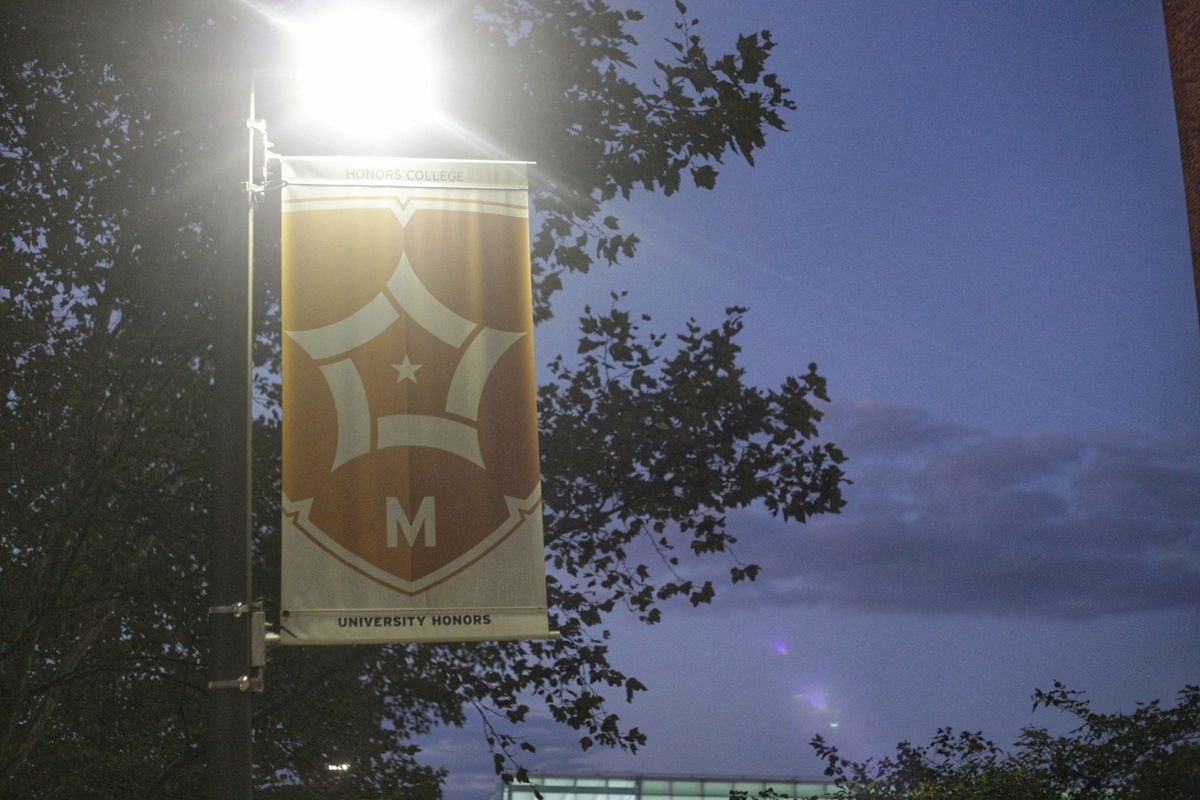The University of Maryland Senate is set to review upcoming changes to the University Honors program that will make it more exclusive.
This university’s honors college comprises the University Honors program, as well as six other living and learning programs. On April 4, the senate is set to view an informational presentation about the changes, which will limit University Honors classes — which typically draw 30 percent of their enrollment from the honors college’s other programs — to students in University Honors starting next fall.
Currently, students from the six other programs — Design Cultures and Creativity, Entrepreneurship and Innovation, Integrated Life Sciences, Gemstone, Advanced Cybersecurity Experience for Students and Honors Humanities — can enroll in University Honors classes, but University Honors students can’t take classes offered by the other programs.
Isabelle Lim, who is in the Gemstone honors program, took a Global Terrorism seminar honors course in the University Honors program and thought the courses should not be limited.
“We’re all technically in the honors college,” said Lim, a freshman biology major. “I think a lot of the seminars touch on hot topics that not a lot of regular standard classes touch upon.”
[Read more: “A slap in the face”: UMD Senate reacts to Wallace Loh’s postponed retirement]
The freshman class of 2020 will be the first to use the new program. Current students, as well as the freshman class of 2019, will continue under the current program.
The proposal follows a survey conducted by the Honors College External Review Committee during the 2014-15 academic year, which found that fewer than 10 percent of University Honors students felt they learned more than students in the other six programs.
A University Senate document notes that some students enroll in University Honors classes only because they are required to do so by their living-learning program, are satisfying general education credits they can satisfy in alternate ways, or purely out of interest.
Even so, Marissa Swamy, who is in University Honors, liked the overlap. Her best friends are from Gemstone and other honors programs.
“I feel like allowing everyone to take the same classes also enhances that because everyone can get to know each other,” said Swamy, a freshman enrolled in letters and sciences.
The changes would also alter the requirements University Honors students must fulfill to receive their honors citations.
Rather than taking an assortment of unrelated seminars and honors-version classes, these students would be required to complete a 15-credit sequence of classes and seminars that fall under a specific theme, such as social justice, geopolitics of disease or biomedical ethics.
It would also tack on a two-credit professionally focused capstone seminar for University Honors students to reflect on and complete their program — a requirement that other honors programs already have for students who want to receive citations.
[Read more: UMD Senate wants more members to participate in its Slack channel]
But some University Honors students like the flexibility to choose classes, rather than having a required series.
“It gives people the option to focus on what they want,” said freshman biology major Brooke Weiner, who is in University Honors.
There are also plans to incentivize faculty to further develop courses, because all courses would be guaranteed to be offered more than once, unlike the current curriculum, according to the Senate document.
By offering stipends, a budget for course enrichment, subsidized teaching assistants from their home department and more, the university hopes to attract tenure-track faculty to teach classes in the program. Currently, less than half of the faculty members who teach University Honors courses are tenure-track; many are adjuncts or are teaching outside of their discipline.
But sophomore Mary Murdock, who is in Honors Humanities, said when she took two University Honors journalism seminars — HONR228T: Journalism and Peace, and HONR239J: ‘Enemy of the People’: When Journalism Investigates the Powerful — her professors had “extensive experience” in the field.
“It’s cool to be taught by people who have a lot of experience in their field, and that’s not always the case with these other professors who have mostly been just working in academia,” Murdock said. “It’s just a different learning experience.”
CORRECTION: Due to a reporting error, a previous version of this story said the University Senate was set to vote on the proposed changes to the University Honors program. The senate does not have plans to vote on or approve the changes, but it does plan to review an informational presentation about the changes, which are set to go into effect next fall. This story has been updated.
Staff writer Sarah D’Souza contributed to this report.



